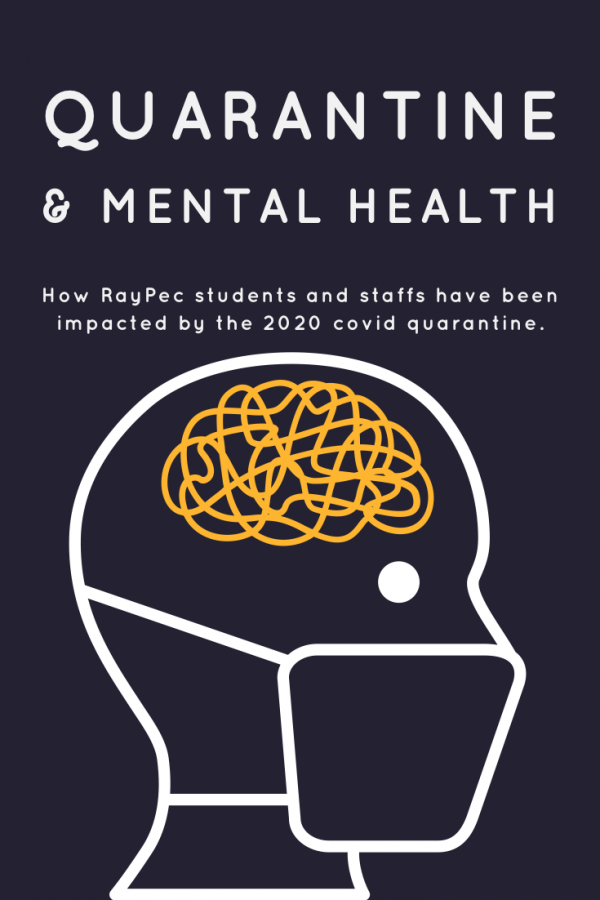Quarantine and Mental Health
September 30, 2020
In spring of 2020, COVID-19 became a global pandemic, forcing many to quarantine for months. Adults and kids of every race, religion, ethnicity, have been affected, mentally, physically, and emotionally. The faculty and staff at Ray-Pec have been struggling with the dramatic changes that COVID-19 has and continues to make on the world.
RP Mental Health Professional for all secondary students, Sarah Kuchinski, provides mental help plans for students in need and also offers therapy services for those who do not have access to therapy and other mental health resources. Due to COVID-19, Kuchinski believes that many students and teachers did not get a break for their mental health.
“Moving into summer, so much was unknown. We did not know what school was going to look like, or if it would be safe to return. Our typical summer breaks that include vacations, reunions, and rest were spent worrying about if it was safe to travel, what would get canceled, and what the return to school would look like,” said Kuchinski.
While senior Reece Dunsworth acknowledges this time has been hard for everyone, he tries to focus on the positives in life. However, he knows it is important to seek the help needed and hopes everyone knows they have people willing to help them through hard times.
“[Quarantine] was a social reset button; it was just a big gap in our lives where we all just got to step away from people and just spend time with yourself,” said Dunsworth.
English teacher, Laura Columbatto, has used this time to reflect on how herself and her family operates as well as her own mental health. She hopes students will give teachers the same grace they expect from teachers.
Although this time is taunting and scary for teachers and students alike, Columbatto, shares what is important to remember when struggling during these times.
From the masks, cleaning tables, small classes and nearly silent lunches, the new protocols have teachers and students all over the place. Despite everyone’s personal opinions on masks, Kuchinski knows face masks affect all students’ psychological well-being.
“I think everyone is adapting to it as best we can. I feel the biggest challenge (though I completely support the policy) is wearing masks. Our brains have so many specific areas dedicated to recognizing people’s facial expressions in order to interpret meanings and make those essential connections. I find that I have to be more verbally expressive of my emotion and meaning when I am wearing a mask, and this is another new challenge. I prefer to be optimistic about this challenge and realize it will make me that much better at communication. Optimism is a huge part of resiliency, so I have tried to be even more intentional to acknowledge the parts that have been hard, but to really focus on the positive,” said Kuchinski.
Although these times are hard for everyone, Kuchinski believes students and staff can get through it by maintaining an optimistic outlook. These times may be hard for students’ mental health, but Kuchinski knows students can get through it by taking it slow and reaching out when they need help.




